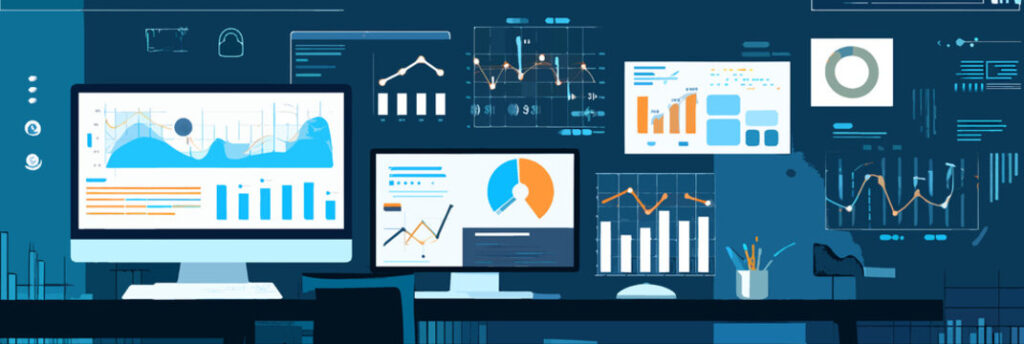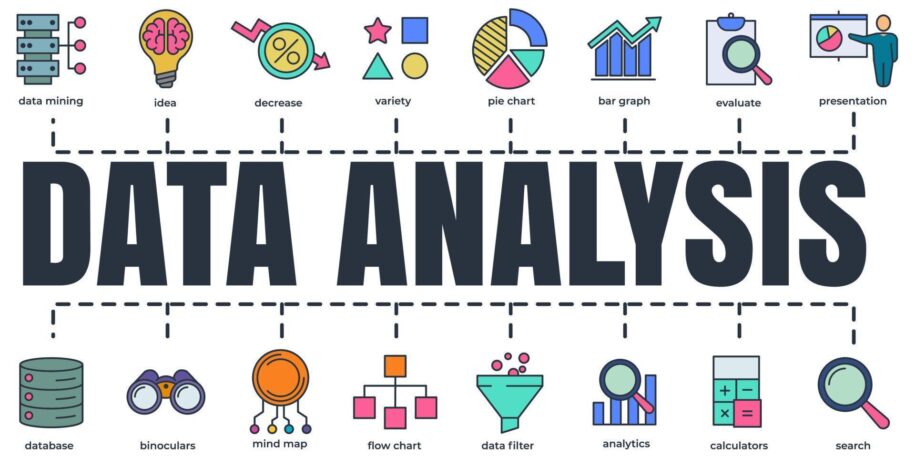Have you ever wondered how businesses make smarter decisions in today’s data-driven world? That’s where data analytics comes in. It’s not just a buzzword; it’s a game-changer.
What Is Data Analytics?
In simple terms, data analytics involves collecting, analyzing, and interpreting data to uncover useful insights. Think of it as a detective using data to solve mysteries about what customers want, how markets behave, or even predicting future trends.
Why Is Data Analytics Important for Businesses?
Without data analytics, businesses are flying blind. It provides clarity, direction, and a way to measure success. In a world full of competition, leveraging data gives you the upper hand.
The Key Components of Data Analytics
To fully unlock the potential of data analytics, you need to understand its building blocks.
Big Data
Big data refers to the massive amount of information generated every second—emails, social media posts, transactions, and more. Analyzing this flood of data helps businesses find patterns and trends.
Data Science
Data science is like the brain behind data analytics. It combines statistics, programming, and domain knowledge to interpret complex data and drive decision-making.
Business Intelligence Tools
These tools transform raw data into meaningful insights. From dashboards to reports, they make understanding data less intimidating.

Benefits of Data-Driven Decision Making
Why should businesses care about data-driven decisions? Here’s why.
Improved Decision-Making
Making decisions based on gut feelings can backfire. Data analytics ensures your decisions are backed by facts and not just hunches.
Enhanced Customer Experiences
Want to keep your customers happy? Analytics can show you their preferences, allowing you to offer personalized services.
Competitive Advantage
Businesses using data effectively outperform those that don’t. It’s like running a race with a map versus running blindfolded.Steps to Implement Data Analytics in Your Business
Here’s how you can kickstart your data analytics journey:
Step 1: Define Your Goals
What are you trying to achieve? Whether it’s boosting sales or improving customer retention, clarity is key.
Step 2: Collect and Organize Data
Gather data from relevant sources like websites, social media, or CRM tools. Organize it in a way that’s easy to analyze.
Step 3: Use the Right Tools
Invest in tools like Tableau or Google Analytics to simplify the data-crunching process.

Common Challenges in Data Analytics
Like any powerful tool, data analytics comes with its challenges.
Data Overload
Too much data can be overwhelming. The trick is to focus on what’s relevant.
Ensuring Data Accuracy
Garbage in, garbage out. If your data is inaccurate, your insights will be too.
Skills Gap in Data Science
Not everyone is a data wizard. Investing in training can bridge this gap.
Best Practices for Leveraging Data Analytics
Follow these tips to get the most out of your data:
Invest in Training and Expertise
Hire or train employees to understand and use data effectively.
Regularly Update Your Tools
Outdated tools can slow you down. Keep your technology stack fresh.
Focus on Actionable Insights
Data for the sake of data won’t help. Look for insights you can act on immediately.
Real-World Examples of Data Analytics Success
Here’s how businesses are making waves with data:
E-commerce Personalization
Platforms like Amazon use data to recommend products you’re likely to buy.
Predictive Maintenance in Manufacturing
Data helps predict equipment failures before they happen, saving costs.
Targeted Marketing Campaigns
Companies like Netflix use analytics to target their audience effectively.

The Future of Data Analytics
The best is yet to come.
The Role of Artificial Intelligence
AI is making data analytics smarter and faster.
Ethical Data Use
As data grows, so does the need for ethical practices to protect privacy.
Democratization of Data
Soon, data analytics will be accessible to everyone, not just tech-savvy professionals.
Conclusion
Data analytics isn’t just a tool; it’s a superpower. By understanding your data, you can unlock hidden insights, improve decision-making, and fuel business growth. Start small, but dream big—data analytics has the potential to transform your business.
FAQs
- What is the difference between data analytics and data science?
Data analytics focuses on interpreting data, while data science involves creating algorithms and models to analyze it. - How can small businesses benefit from data analytics?
Even small businesses can use analytics to track customer behavior, optimize operations, and boost sales. - What tools are essential for data analytics?
Popular tools include Google Analytics, Tableau, and Microsoft Power BI. - What are the risks of relying too heavily on data analytics?
Over-reliance can lead to ignoring human intuition and creativity. - How do I start a career in data analytics?
Begin with courses on platforms like Coursera or Udemy and gain experience with tools like Excel and Python.


Leave a Reply